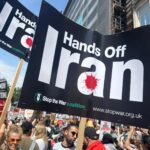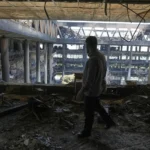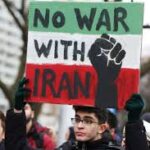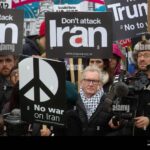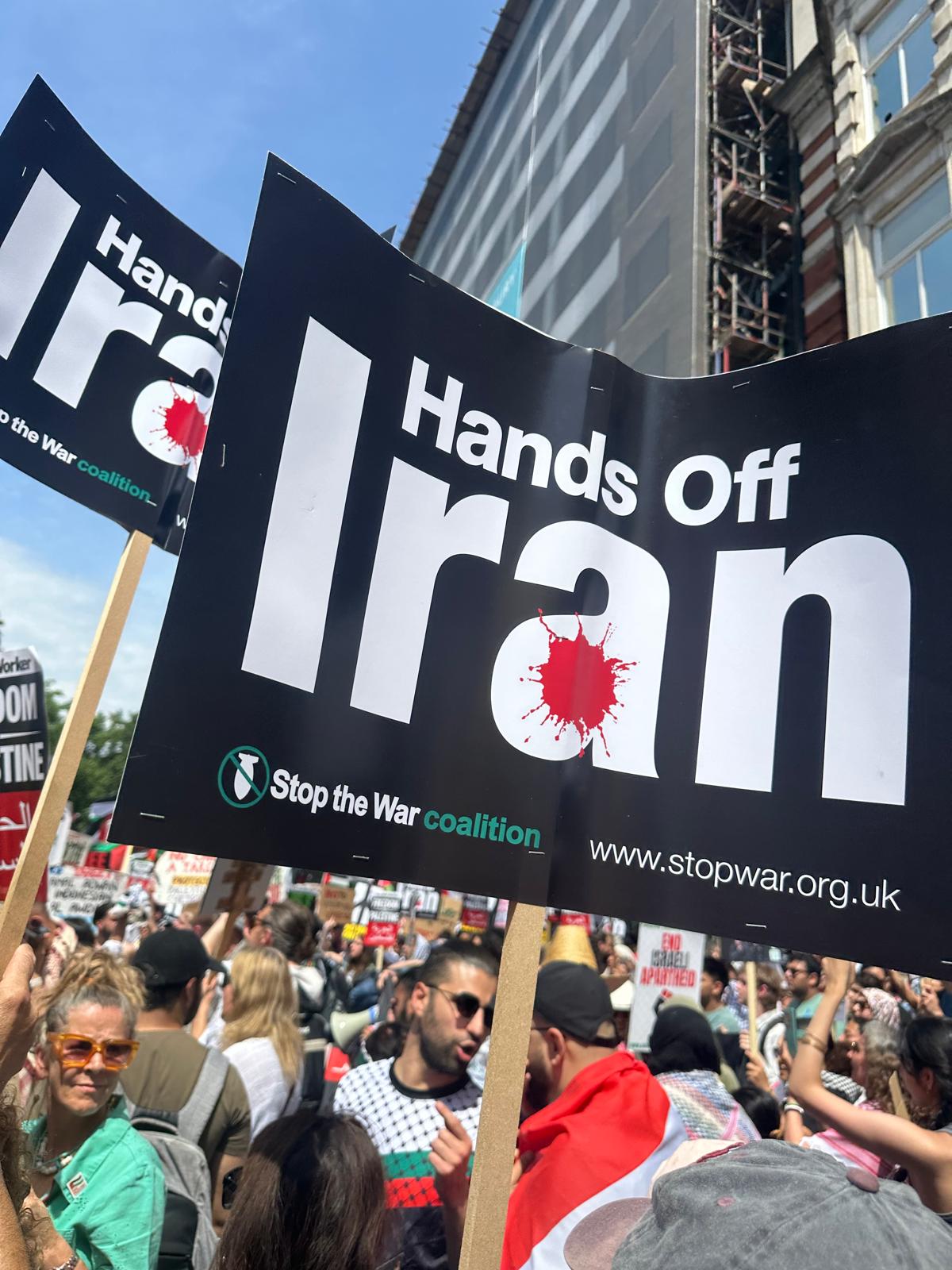
The United Nations Security Council met in emergency session yesterday (22 June) to discuss US strikes on Iran’s nuclear sites as Russia, China and Pakistan proposed the 15-member body adopt a resolution calling for an immediate and unconditional ceasefire in the Middle East.
To pass, the resolution would require the backing of at least nine members and no vetoes from the five permanent members – China, France, Russia, Britain and the US. This makes it a non-starter since the US will not censure itself.
UN Secretary-General Antonio Guterres warned that the region was standing “on the brink of a deadly downward spiral”.
“The bombing of Iranian nuclear facilities by the United States marks a perilous turn in a region that is already reeling,” Guterres said. “We now risk descending into a rathole of retaliation after retaliation. We must act – immediately and decisively – to halt the fighting and return to serious, sustained negotiations on the Iran nuclear programme.”
Inevitably, the US defended its actions and that of its regional ally and proxy, Israel, claiming that the attack upon Iran was necessary “in defence of its ally and our own interests” according to US Ambassador to the UN, Dorothy Shea.
Ms Shea was backed by Israel’s UN envoy, Danny Danon, who said the attacks had made the world “a safer place”, rejecting calls for condemnation.
In supporting calls for a ceasefire China’s ambassador, Fu Cong, condemned the US strikes and urged restraint. “We call for an immediate ceasefire,” he said. “China is deeply concerned about the risk of the situation getting out of control.”
Adding the voice of another permanent UN Security Council member to the debate, Russia’s UN envoy, Vasily Nebenzya, described the attacks as yet another sign of Washington’s disregard for global norms. “The US has opened a Pandora’s box,” he said. “No one knows what catastrophe or suffering will follow.”
There is no doubt that the bombing of Iranian nuclear sites by the United States over this weekend is a flagrant breach of international law and a further indication of the designs of US imperialism to re-shape the map of the Middle East.
Following the unprovoked attack upon Iran by Israel last week, US President, Donald Trump, called for Iran’s “unconditional surrender”, while preparing to give the green light for overt military intervention by the United States. That order has now been enacted in spite of Trump’s America first and no foreign intervention rhetoric. Though without Congressional approval for such action impeachment may be an issue Trump has to face, his action having made the danger of a world war significantly higher than at any time in the past.
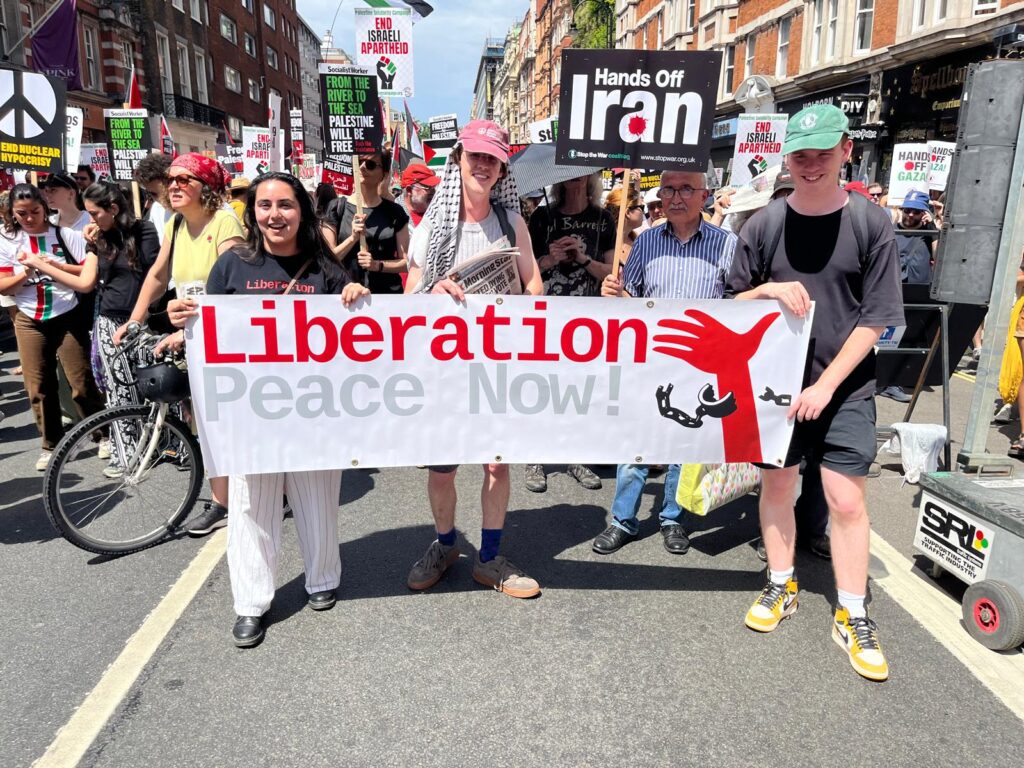
The US had already been covertly assisting the Israeli assault by providing back up for its Iron Dome missile defence system, designed to intercept any Iranian missiles fired towards Israel in response.
Israel has a decades long record of flouting international conventions and dismissing United Nations resolutions but, to be backed so overtly in doing so, by its major ally and arms supplier, takes the threat to world peace which US and Israeli actions represent, to a new level.
In addition, it is widely known that Israel has a nuclear capability though, in line with its official policy of “nuclear ambiguity”, it refuses to confirm or deny the existence of a nuclear arsenal. The possibility of the use of nuclear weapons by Israel, given the religious fundamentalist nature of its leadership, cannot be ruled out.
The impact of the strikes upon the sites in terms of any nuclear leakage is still an unknown factor. The head of the International Atomic Energy Agency (IAEA), Rafael Grossi, told the UN that while the scale of underground damage remained unclear, impact craters were visible at the Fordow enrichment site. The entrances to tunnels at the Isfahan site appeared to have been struck, while Natanz – long a target of Israeli sabotage – had been hit again.
With no let up in the US/Israeli assault anticipated the dangers of contamination arising from the sites must be a real one.
Iranian Minister of Foreign Affairs Abbas Araghchi accused the US of breaching international law, stating that Iran “reserves all options to defend its sovereignty, interest, and people”.
The position of the British government remains one of support for the US breach of international law, with a statement from Prime Minister, Kier Starmer, failing to recognise the danger of US actions for world peace, saying,
“Iran’s nuclear programme is a grave threat to international security. Iran can never be allowed to develop a nuclear weapon and the US has taken action to alleviate that threat.”
Opposition to the attacks upon Iran has been evident on the streets of major cities across the world, including the United States, Britain and the throughout the Middle East. Pressure to stop the war and bring the US and Israel to justice for war crimes must now be the imperative for peace campaigners across the globe, in order to stop the escalation and prevent the endangering of more lives in the Middle East and beyond.
Steve Bishop is a member of Executive Committee of CODIR
23rd June 2025

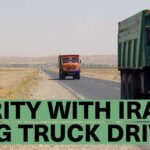





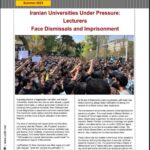
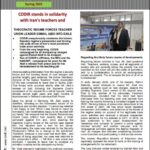




 Posted in
Posted in 
